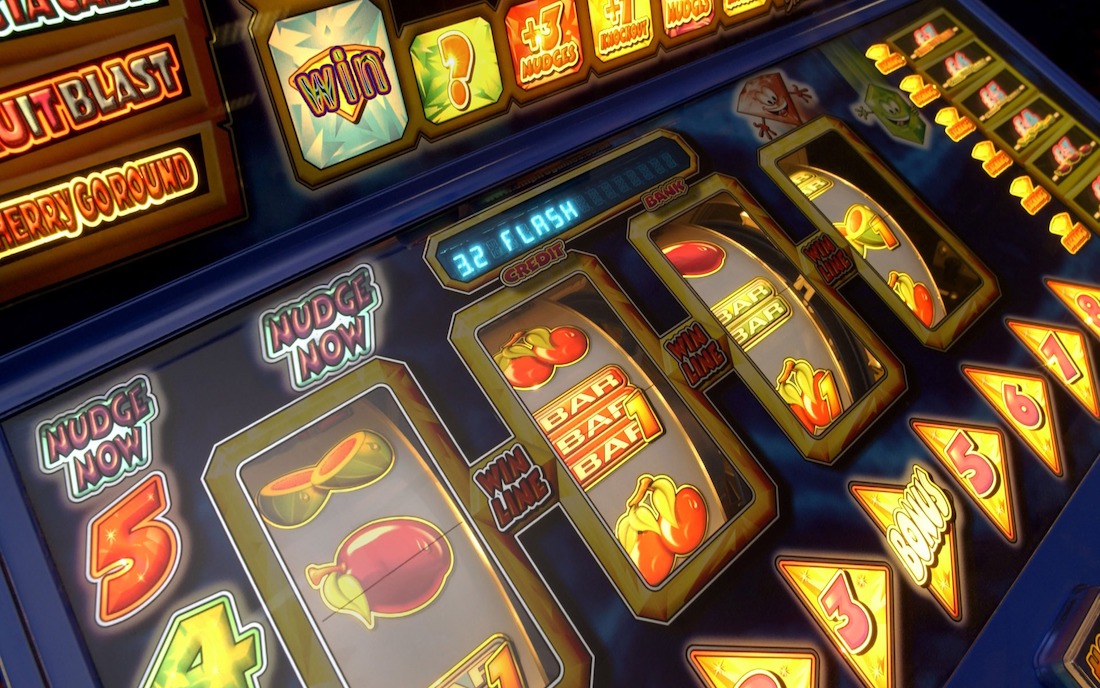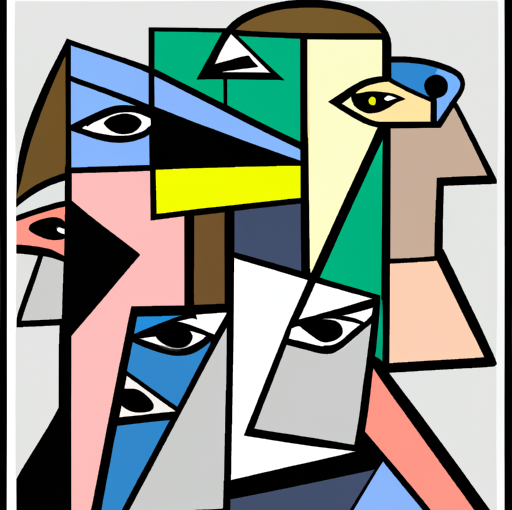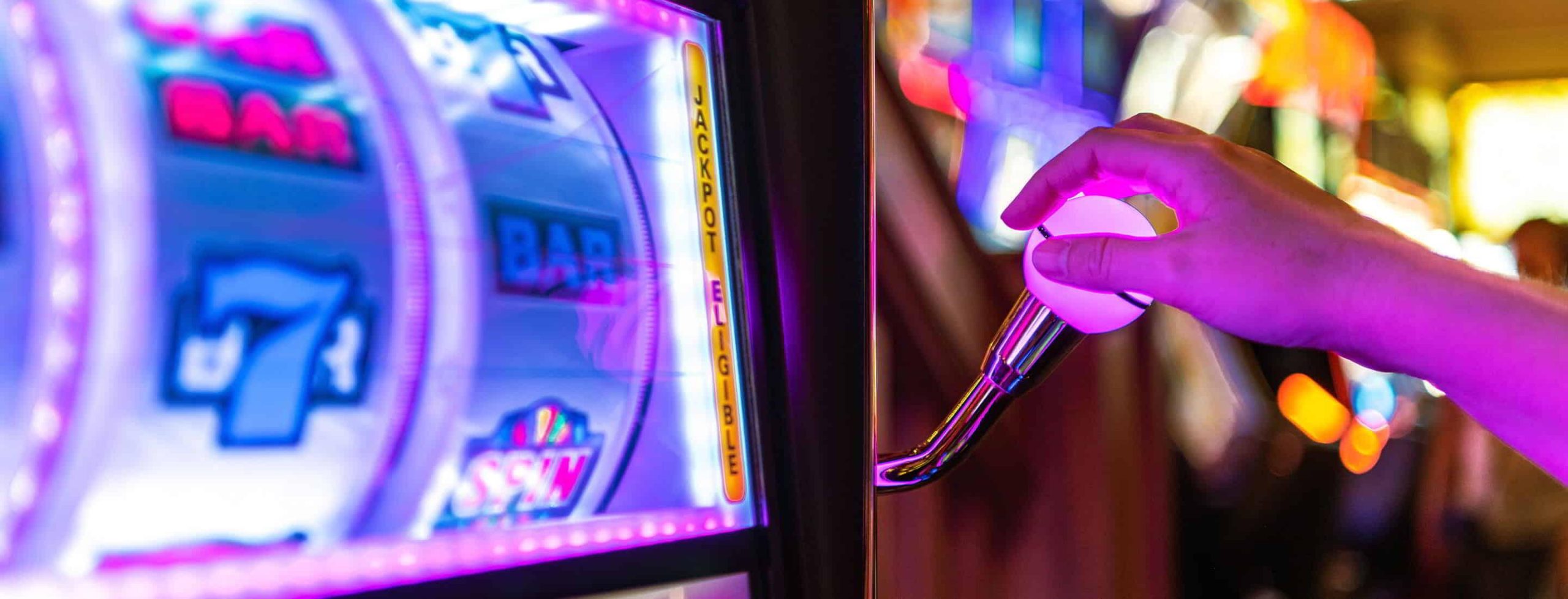-
LucksCasino.com Online - Live Casino ,Blackjack, Roulette, Slots, Telephone Gambling & Bets: Professional Article Sequence
- Introduction
- Negative Odds Explained: Understanding the Math Behind Betting
- The Psychology of Negative Odds: Why We're Drawn to Risky Bets
- How Bookmakers Use Negative Odds to Their Advantage
- The Role of Probability in Negative Odds and Sports Betting
- Why Negative Odds Are More Common Than Positive Ones
- The Impact of Negative Odds on Sports Fans and Bettors
- Negative Odds vs. Positive Odds: Which is Better for Bettors?
- The History of Negative Odds in Gambling and Sports Betting
- How to Calculate Negative Odds and Determine Your Potential Winnings
- The Ethics of Offering Negative Odds in Sports Betting
- Negative Odds and the Future of Sports Betting Technology
- The Connection Between Negative Odds and Addiction to Gambling
- Strategies for Making Profitable Bets Despite Negative Odds
- Q&A
- Conclusion
"Why Good Odds Can Be Deceivingly Negative"
Introduction
Good odds are sometimes related to optimistic outcomes, however in the world of betting and gambling, good odds can truly be destructive. This may appear counterintuitive, however understanding why good odds are destructive is essential for anybody trying to make knowledgeable choices when inserting bets or taking part in games of likelihood. On this article, we'll discover the idea of destructive odds and why they're necessary to think about when gambling.
Negative Odds Defined: Understanding the Math Behind Betting
With regards to betting, odds are all the things. They decide the probability of an occasion occurring and the potential payout for a profitable bet. Nonetheless, not all odds are created equal. In actual fact, some odds may appear counterintuitive at first look, such pretty much as good odds being destructive. So why are good odds destructive? Let's dive into the mathematics behind betting to grasp this phenomenon.
Firstly, it is necessary to grasp that odds characterize the chance of an occasion occurring. For instance, if a horse has 2:1 odds of successful a race, it means there is a one in three likelihood (33.3%) of the horse successful and a two in three likelihood (66.7%) of it dropping. The upper the odds, the decrease the chance of the occasion occurring.
Now let's think about destructive odds. Negative odds point out that an occasion is more more likely to not happen than happen. For instance, if a football workforce has -150 odds to win a game, it means that you'd have to bet $150 to win $100 in the event that they do win. This suggests that there is a 60% likelihood of them dropping and solely a 40% likelihood of them successful.
So why are good odds destructive? All of it comes right down to how bookmakers make their money. Bookmakers intention to set their odds in such a manner that they'll make a revenue whatever the end result of an occasion. To do that, they use advanced algorithms and statistical fashions to calculate the chance of every end result after which regulate their odds accordingly.
To ensure that bookmakers to make money on bets with optimistic odds (the place there is the next chance of an occasion occurring), they should offer decrease payouts than what can be anticipated based mostly on the true chance of the occasion occurring. This is generally known as "juice" or "vig" and is basically a fee charged by bookmakers for facilitating bets.
On the other hand, when bookmakers offer destructive odds (the place there is the next chance of an occasion not occurring), they can afford to offer greater payouts than what can be anticipated based mostly on the true chance of the occasion not occurring. This is as a result of they know that most individuals will bet on optimistic outcomes and subsequently have to incentivize folks to bet towards destructive outcomes.
For instance, for example there is a tennis match between two players the place one participant has -200 odds and the other has +150 odds. This suggests that there is a 67% likelihood of Player A successful and solely a 33% likelihood of Player B successful. Nonetheless, if everybody have been to bet on Player A (the favourite), bookmakers would stand to lose money if Player A have been to win since they must pay out more than what was bet towards them.
To stability their books, bookmakers will regulate their traces in order that more folks will bet on Player B (the underdog). By providing higher payouts for betting towards Player A (-200) than for betting on Player B (+150), bookmakers can incentivize folks to take dangers and bet towards standard opinion.
In conclusion, good odds are destructive as a result of bookmakers have to stability their books by incentivizing folks to take dangers and bet towards standard opinion. By providing higher payouts for destructive outcomes than what can be anticipated based mostly on true possibilities, bookmakers can ensure that they make money no matter which end result happens. Understanding this math behind betting can help you make more knowledgeable choices when inserting bets and avoid falling prey to frequent misconceptions about how betting works.
The Psychology of Negative Odds: Why We're Drawn to Dangerous Bets
With regards to gambling, we frequently hear concerning the odds of successful or dropping. These odds are usually expressed as a proportion or a ratio, and so they can be optimistic or destructive. Constructive odds imply that you've got the next likelihood of successful than dropping, whereas destructive odds imply the alternative. However why are good odds destructive? And why can we generally find ourselves drawn to dangerous bets regardless of the destructive odds?
To reply these questions, we have to delve into the psychology of gambling. One of many key elements that affect our gambling conduct is our notion of risk and reward. We are likely to overestimate our probabilities of successful and underestimate our probabilities of dropping, particularly once we're emotionally invested in the end result.
This cognitive bias is generally known as optimism bias, and it can lead us to make irrational choices based mostly on incomplete or biased information. For instance, if we're taking part in a game of roulette and we have received a number of times in a row, we would begin to imagine that we're on a lucky streak and that our probabilities of successful once more are greater than they really are.
This type of considering can additionally lead us to disregard destructive information or warning indicators that recommend we should always cease gambling. As an illustration, if we have misplaced a number of rounds in a row, we would persuade ourselves that we're due for a win and preserve betting regardless that the odds are towards us.
One other issue that contributes to our attraction to dangerous bets is the fun of uncertainty. When there's an opportunity that one thing surprising may occur - whether or not it is successful huge or dropping all the things - our brains launch dopamine, a neurotransmitter related to pleasure and reward.
This rush of dopamine can be addictive, particularly for people who find themselves susceptible to sensation-looking for conduct or who've underlying psychological well being points resembling nervousness or melancholy. In some instances, folks may flip to gambling as a manner to deal with these points or escape from their issues.
So why are good odds destructive? The reply lies in how bookmakers and casinos make their earnings. They use mathematical fashions and statistical evaluation to calculate the chance of various outcomes and set their odds accordingly.
So as to ensure that they make money whatever the end result, they regulate their odds in order that they at all times have an edge over the participant. This edge is generally known as the house edge, and it is what permits casinos and bookmakers to remain in enterprise.
For instance, for example you are taking part in blackjack at a casino with a 1% house edge. Which means that for each $100 you bet, you can count on to lose $1 on common over time. Even in case you win some palms and even a number of games in a row, ultimately the house edge will meet up with you and you may find yourself dropping more than you win.
After all, this does not imply that you must by no means gamble or take dangers. Gambling can be fun and thrilling when performed responsibly and inside your means. Nonetheless, it is necessary to grasp the psychology behind your gambling conduct so that you simply can make knowledgeable choices about when and the way much to bet.
When you find your self drawn to dangerous bets regardless of realizing the destructive odds, try taking a step again and analyzing your motivations. Are you looking for thrills or attempting to flee from one thing? Are you conscious of your biases and limitations on the subject of assessing risk?
By being sincere with your self about your motivations and limitations, you can develop more healthy habits round gambling and avoid falling into traps set by bookmakers and casinos. Keep in mind: good odds may be destructive as a result of they mirror actuality more precisely than wishful considering does.
How Bookmakers Use Negative Odds to Their Benefit
With regards to sports betting, odds are all the things. They decide the probability of a selected end result and the potential payout for a profitable bet. Nonetheless, you may have seen that bookmakers usually use destructive odds, which can be complicated for novice bettors. On this article, we'll discover why good odds are destructive and the way bookmakers use them to their benefit.
Firstly, it is necessary to grasp what odds characterize in sports betting. Odds are a numerical illustration of the chance of an occasion occurring. For instance, if a workforce has odds of two/1 to win a game, it signifies that they've a 33% likelihood of successful (calculated by dividing 1 by 2+1). The upper the odds, the much less possible an occasion is to happen.
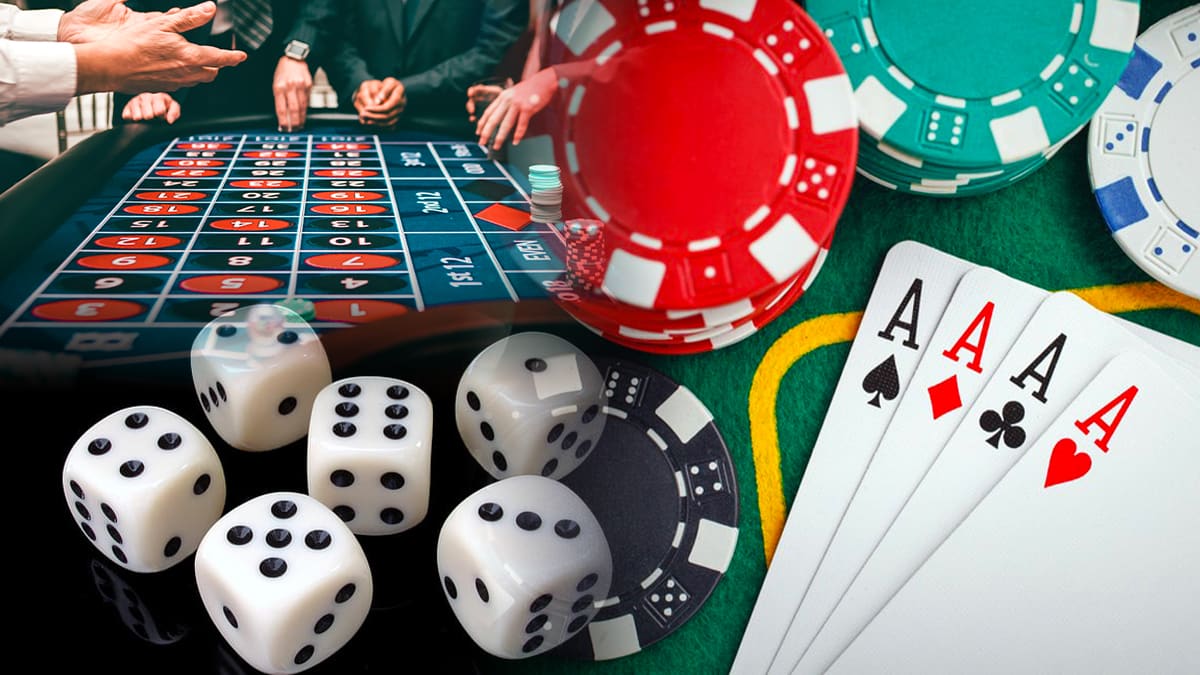

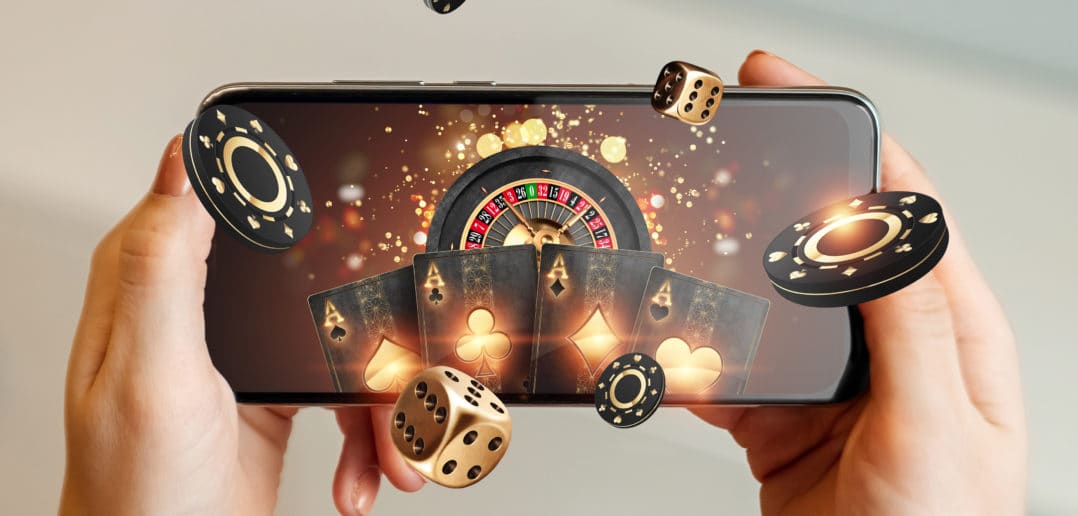

Now, let's take a look at why good odds are destructive. Negative odds point out that an occasion is more more likely to occur than not. For instance, if a workforce has odds of -150 to win a game, it signifies that they've a 60% likelihood of successful (calculated by dividing 150 by 100+150). In other phrases, destructive odds characterize the favourite in a selected matchup.
Bookmakers use destructive odds to their benefit as a result of they know that the majority bettors favor to bet on favorites reasonably than underdogs. This is generally known as the "public bias" or "public notion." Bookmakers can regulate the odds accordingly to draw more bets on the favourite and stability their books.
For instance, for example that two groups are taking part in every other and one workforce is closely favored over the other. The bookmaker may set the odds at -300 for the favourite and +250 for the underdog. Which means that in case you bet $100 on the favourite and so they win, you'd solely obtain $33 in revenue (calculated by multiplying $100 by 0.33). Nonetheless, in case you bet $100 on the underdog and so they win, you'd obtain $250 in revenue (calculated by multiplying $100 by 2.5).
On this state of affairs, most bettors can be inclined to bet on the favourite as a result of they imagine that they're more more likely to win. Nonetheless, bookmakers know that there is at all times an opportunity for an upset and can regulate their odds accordingly to attenuate their risk.
One other manner that bookmakers use destructive odds to their benefit is by means of "juice" or "vig." Juice refers back to the fee that bookmakers cost for putting bets. For instance, in case you place a $100 bet with -110 odds (which implies it's essential risk $110 to win $100), you'd solely obtain $91 in revenue in case your bet wins (calculated by multiplying $100 by 0.91). The remaining $9 goes in the direction of paying juice.
Bookmakers regulate their juice based mostly on public notion and betting patterns. If there is heavy motion on one facet of a selected matchup (i.e., everybody is betting on the favourite), bookmakers may enhance their juice on that facet to stability their books.
In conclusion, good odds are destructive as a result of they characterize favorites in sports betting matchups. Bookmakers use destructive odds to their benefit by adjusting them based mostly on public notion and balancing their books by means of juice or vig. As a bettor, it is necessary to grasp how bookmakers use destructive odds so that you simply can make knowledgeable choices when inserting bets. At all times do your analysis earlier than inserting any bets and by no means chase losses or overextend your self financially.
The Position of Chance in Negative Odds and Sports Betting
With regards to sports betting, odds are all the things. They decide the probability of a selected end result and finally dictate how much money you stand to win or lose. However have you ever ever questioned why good odds are destructive? It may appear counterintuitive, however there's truly a logical explanation behind it.
To know why good odds are destructive, we first want to grasp the position of chance in sports betting. Chance is merely a measure of how possible one thing is to occur. In sports betting, chance is used to calculate the odds of a selected end result occurring.
Odds are sometimes expressed as both fractions or decimals. For instance, if the odds of a workforce successful a game are 2/1, because of this for each $1 you bet, you stand to win $2 in case your bet is profitable. Alternatively, if the odds are expressed as decimals (e.g., 3.00), because of this for each $1 you bet, you stand to win $3 in case your bet is profitable.
So why are good odds destructive? The reply lies in the idea of implied chance. Implied chance is merely the chance that is implied by the odds. To calculate implied chance, we use the next formula:
Implied Chance = 1 / Decimal Odds
For instance, if the decimal odds for a selected end result are 3.00, then the implied chance can be:
Implied Chance = 1 / 3.00 = 0.33 (or 33%)
Now for example that you are looking at two completely different bets with the next odds:
Bet A: Decimal Odds = 2.00
Bet B: Decimal Odds = 4.00
At first look, it may seem to be Bet B has higher odds because it offers the next potential payout. Nonetheless, once we calculate the implied possibilities for every bet utilizing the formula above, we get:
Bet A: Implied Chance = 1 / 2.00 = 0.50 (or 50%)
Bet B: Implied Chance = 1 / 4.00 = 0.25 (or 25%)
As you can see, Bet A has the next implied chance than Bet B regardless that its potential payout is decrease. This is why good odds are destructive – they characterize outcomes which have a decrease implied chance.
In other phrases, once you see destructive odds in sports betting (e.g., -150), because of this the end result being provided has the next implied chance than an end result with optimistic odds (e.g., +150). Negative odds point out that an end result is more more likely to happen than not.
After all, this does not imply that you must at all times bet on outcomes with destructive odds. There's at all times a component of risk concerned in sports betting and no end result is ever assured.
Nonetheless, understanding how chance and implied chance work can help you make more knowledgeable choices when inserting bets. By calculating the implied possibilities for various outcomes and evaluating them to their respective odds, you can establish alternatives the place there may be worth in inserting a bet.
In conclusion, good odds are destructive as a result of they characterize outcomes with the next implied chance than outcomes with optimistic odds. Understanding how chance and implied chance work can help you make more knowledgeable choices when inserting bets and establish alternatives the place there may be worth in taking a riskier bet with longer optimistic odd values over safer bets with shorter destructive odd values however decrease payouts total..
Why Negative Odds Are Extra Frequent Than Constructive Ones
With regards to betting, odds are all the things. They decide the probability of an occasion occurring and the potential payout for a profitable bet. Nonetheless, one factor that usually confuses folks is why good odds are destructive. It appears counterintuitive {that a} greater likelihood of successful would end result in a destructive number, however there is truly a logical explanation for this phenomenon.
Firstly, it is necessary to grasp how odds are calculated. Odds characterize the chance of an occasion occurring, expressed as a ratio or fraction. For instance, if the odds of a horse successful a race are 2:1, because of this there is a 33% likelihood of the horse successful (1 divided by 2+1). The potential payout for a profitable bet on this horse can be $2 for each $1 wagered.
Now, let's think about why good odds are destructive. Normally, bookmakers set their odds based mostly on the probability of an occasion occurring and the quantity of money being wagered on every end result. If there is more money being positioned on one end result than one other, the bookmaker will regulate the odds to stability their books and ensure they make a revenue whatever the end result.
Which means that when an end result is thought of more more likely to happen, the odds will likely be decrease (or destructive) as a result of more folks will likely be betting on it. Conversely, when an end result is thought of much less more likely to happen, the odds will likely be greater (or optimistic) as a result of fewer folks will likely be betting on it.
For instance, for example there is a tennis match between two players - Player A and Player B. Bookmakers have decided that Player A has a 70% likelihood of successful and Player B has a 30% likelihood of successful. In the event that they set the odds at -200 for Player A and +300 for Player B, because of this you would wish to bet $200 on Player A to win $100 (plus your unique stake) and you'd win $300 (plus your unique stake) in case you bet $100 on Player B.
On this state of affairs, regardless that Player A has higher odds of successful, their odds are destructive as a result of more individuals are anticipated to bet on them. This ensures that bookmakers can stability their books and make a revenue no matter who wins.
Another excuse why good odds are destructive is as a result of bookmakers have to issue in their very own revenue margin when setting their costs. They do not simply wish to break even - they wish to make money too! By providing barely decrease odds than what is perhaps thought of "fair", they can ensure that they make a revenue over time.
After all, not all bookmakers function in precisely the identical manner and there may be some variation in how they set their costs. Nonetheless, in common terms, it is safe to say that good odds are usually destructive as a result of more individuals are anticipated to bet on them and bookmakers have to issue in their very own revenue margin.
In conclusion, whereas it may appear counterintuitive at first look, there is truly a logical explanation for why good odds are destructive. Bookmakers set their costs based mostly on the probability of an occasion occurring and regulate them as essential to stability their books and ensure they make a revenue over time. So subsequent time you see destructive odds on your favourite workforce or participant, keep in mind that it is not essentially dangerous news - it simply signifies that they're anticipated to do properly!
The Influence of Negative Odds on Sports Followers and Bettors
Sports betting has grow to be a well-liked pastime for many individuals across the world. It is an thrilling solution to get pleasure from sports and probably win some money whereas doing so. Nonetheless, one facet of sports betting that can be complicated for newcomers is the idea of destructive odds. Why are good odds destructive? This article will discover the impression of destructive odds on sports followers and bettors.
Firstly, it is necessary to grasp what destructive odds imply. Negative odds point out {that a} specific end result is more more likely to occur than not. For instance, if a workforce has odds of -150 to win a game, it signifies that they're favored to win and also you would wish to bet $150 to win $100. On the other hand, optimistic odds point out that an end result is much less more likely to occur than not. If a workforce has odds of +150 to win a game, it signifies that they're the underdogs and also you would wish to bet $100 to win $150.
Negative odds can have a big impression on sports followers and bettors. For one, they can be intimidating for newcomers who may not perceive what they imply or how they work. Negative odds can additionally discourage some folks from betting altogether as a result of they really feel like they're risking too much money for too little reward.
One other impression of destructive odds is that they can result in overconfidence in certain outcomes. When a workforce or participant has closely favored odds, it can be straightforward for followers and bettors alike to imagine that victory is assured. Nonetheless, as any seasoned sports fan is aware of, upsets occur on a regular basis in sports. Simply because a workforce or participant has destructive odds doesn't imply that they're assured to win.
Negative odds can additionally result in complacency amongst groups or players who're closely favored. If a workforce is aware of that they're anticipated to win by a big margin, they may not put in as much effort as they'd if the game was more evenly matched. This can result in lackluster performances and even losses.
Regardless of these potential drawbacks, destructive odds do serve an necessary goal in sports betting. They help ensure that there is stability between the 2 sides of a wager. With out destructive odds, everybody would merely bet on the favourite each time and there can be no level in providing bets in any respect.
As well as, destructive odds can truly be helpful for savvy bettors who know methods to use them successfully. By figuring out conditions the place closely favored groups or players may be overvalued by oddsmakers, these bettors can find worth in betting towards them.
General, whereas destructive odds may appear complicated or intimidating at first look, they play an necessary position in sports betting and shouldn't be ignored by followers or bettors alike. Understanding how destructive odds work and their potential impacts on each side of a wager can help you make more knowledgeable choices when inserting bets in your favourite groups and players.
Negative Odds vs. Constructive Odds: Which is Higher for Bettors?
With regards to sports betting, odds are all the things. They decide the potential payout for a bet and can help bettors make knowledgeable choices about the place to place their money. Nonetheless, not all odds are created equal. In actual fact, some odds are destructive, which can be complicated for novice bettors. So why are good odds destructive? And which is higher for bettors: destructive or optimistic odds?
First, let's outline what we imply by destructive and optimistic odds. Negative odds point out {that a} specific end result is more more likely to occur than not. For instance, if the odds of a workforce successful a game are -150, it signifies that the sportsbook believes there is a 60% likelihood of that workforce successful (since 150/250 = 0.6). Constructive odds, on the other hand, point out that an end result is much less more likely to occur than not. If the odds of a workforce successful a game are +150, it signifies that the sportsbook believes there is a 40% likelihood of that workforce successful (since 100/150 = 0.4).
So why are good odds destructive? The reply lies in how sportsbooks make money. Sportsbooks do not set odds based mostly on what they suppose will occur in a game; as a substitute, they set them based mostly on what they suppose folks will bet on. In other phrases, they wish to stability their books in order that they make money whatever the end result of the game.
To do that, sportsbooks use one thing referred to as the "vig" or "juice." The vig is basically a fee that sportsbooks cost on each bet. It is usually round 10%, though it can range relying on the sport and the type of bet.
When setting odds, sportsbooks consider each the chance of an end result and the vig they will acquire if that end result occurs. If an end result is more more likely to occur than not (i.e., has destructive odds), then the vig will likely be smaller as a result of more folks will likely be betting on it. Conversely, if an end result is much less more likely to occur than not (i.e., has optimistic odds), then the vig will likely be bigger as a result of fewer folks will likely be betting on it.
So which is higher for bettors: destructive or optimistic odds? The reply is determined by your betting technique and risk tolerance.
Negative odds offer decrease payouts however greater probabilities of successful. This makes them perfect for conservative bettors who wish to decrease their risk and construct up their bankroll over time. For instance, in case you bet $100 on a -150 favourite and win, you will solely obtain $66.67 in revenue ($100 x 0.67). Nonetheless, you will have the next likelihood of successful that bet than in case you had positioned $100 on a +150 underdog.
Constructive odds offer greater payouts however decrease probabilities of successful. This makes them perfect for aggressive bettors who're keen to take dangers in order to probably win huge payouts. For instance, in case you bet $100 on a +150 underdog and win, you will obtain $150 in revenue ($100 x 1.5). Nonetheless, you will have a decrease likelihood of successful that bet than in case you had positioned $100 on a -150 favourite.
In the end, whether or not you like destructive or optimistic odds comes right down to your private preferences as a bettor. Some folks get pleasure from taking calculated dangers and going for large payouts; others favor taking part in it safe and slowly build up their bankroll over time.
In conclusion, good odds can be destructive as a result of sportsbooks wish to stability their books and make money whatever the end result of a game. Whether or not you like destructive or optimistic odds is determined by your betting technique and risk tolerance as a bettor. By understanding how various kinds of odds work and selecting bets accordingly, you can enhance your probabilities of making worthwhile bets over time.
The Historical past of Negative Odds in Gambling and Sports Betting
Gambling and sports betting have been round for hundreds of years, and with them, the idea of odds. Odds are a solution to categorical the probability of an occasion occurring, and they're used to find out the payout for a bet. Normally, odds are expressed as optimistic numbers, however in some situations, they can be destructive. This article will discover the historical past of destructive odds in gambling and sports betting.
Negative odds are often known as "odds on" or "minus" odds. They point out that an occasion is more more likely to not occur than to occur. For instance, if the odds of a workforce successful a game are -150, it means that you'd have to bet $150 to win $100 if the workforce wins. If the workforce loses, you lose your bet.
The idea of destructive odds can be traced again to horse racing in the 1800s. Bookmakers would offer odds on every horse in a race based mostly on their perceived probabilities of successful. The favourite would have the bottom odds, whereas the lengthy shot would have the very best odds. Nonetheless, bookmakers quickly realized that they might make more money by providing destructive odds on certain horses.
By providing destructive odds on a horse, bookmakers may entice more bets on other horses in the race. For instance, if there have been three horses in a race with odds of +200, +300, and -150 respectively, most individuals would bet on the primary two horses as a result of they offer the next payout. Nonetheless, by providing destructive odds on one horse, bookmakers may entice folks to bet on the other two horses as a substitute.
Negative odds grew to become more prevalent in sports betting in the course of the twentieth century. As sports betting grew to become more standard and widespread, bookmakers started providing destructive odds on certain groups or players who have been closely favored to win. This allowed them to stability their books and ensure that they made a revenue whatever the end result.
At present, destructive odds are generally used in sports betting for occasions resembling football games and boxing matches. They're additionally used in other types of gambling resembling casino games like blackjack and roulette.
One cause why good odds are sometimes destructive is as a result of bookmakers have to make a revenue. So as to do that, they have to ensure that they take in more money from dropping bets than they pay out for successful bets. By providing destructive odds on certain outcomes, bookmakers can entice more bets on other outcomes and stability their books.
Another excuse why good odds can be destructive is due to public notion. When a workforce or participant is closely favored to win an occasion, many individuals will bet on them whatever the payout provided by bookmakers. By providing destructive odds on these outcomes, bookmakers can discourage folks from inserting bets that will in any other case be unprofitable for them.
In conclusion, destructive odds have been round for hundreds of years and are generally used in gambling and sports betting right now. They permit bookmakers to stability their books and ensure that they make a revenue whatever the end result of an occasion. Whereas good odds may appear counterintuitive when expressed as negatives, they serve an necessary goal in making certain that gambling stays worthwhile for all events concerned.
How you can Calculate Negative Odds and Decide Your Potential Winnings
With regards to sports betting, odds are all the things. They decide the probability of a selected end result and the potential payout for a profitable bet. Nonetheless, not all odds are created equal. In actual fact, a number of the greatest odds in sports betting are destructive. This may appear counterintuitive, however understanding why good odds are destructive is important for any severe bettor.
To know why good odds are destructive, we first want to grasp how odds work. Odds characterize the chance of a selected end result occurring. They're sometimes expressed as both fractions or decimals. For instance, if the odds of a workforce successful a game are 2/1, because of this there is a one in three likelihood (33.3%) of that workforce successful.
Negative odds, on the other hand, characterize outcomes which are more more likely to happen than not. They're expressed as decimals and sometimes have a minus signal in entrance of them. For instance, if the odds of a workforce successful a game are -150, because of this you would wish to bet $150 to win $100.
So why are good odds destructive? The reply lies in the idea of implied chance. Implied chance is the probability of an end result based mostly on the odds provided by a bookmaker or sportsbook. It is calculated by dividing 1 by the decimal odds and multiplying by 100%. For instance, if the decimal odds for a workforce successful a game are 1.50, the implied chance can be 66.7%.
Good odds are destructive as a result of they offer higher worth than their implied chance suggests. In other phrases, they offer the next potential payout than what can be anticipated based mostly on their probability of occurring. This is as a result of bookmakers and sportsbooks wish to entice bets on each side of an occasion to ensure they make money whatever the end result.
For instance, for example that two groups are taking part in every other and one workforce is closely favored to win. The bookmaker units the odds at -300 for that workforce to win and +250 for the underdog workforce to win. Primarily based on these odds, the implied chance for the favored workforce to win can be 75%, whereas the implied chance for the underdog workforce to win can be 28.6%.
Nonetheless, for example that you simply imagine that there is truly a 40% likelihood that the underdog workforce will win based mostly in your evaluation of their latest performances and other elements resembling accidents or climate situations. When you have been to place a $100 bet on this end result at +250 odds and your prediction was right, you'd win $250 plus your unique stake again.
On this state of affairs, you will have recognized good worth in betting on the underdog workforce regardless of their lengthy shot standing as a result of their precise probabilities of successful have been greater than what was mirrored in their optimistic (+) moneyline.
Calculating destructive odds can be difficult at first nevertheless it’s necessary for any severe bettor who needs to maximise their potential winnings whereas minimizing risk publicity.
To calculate your potential winnings from destructive odds bets merely divide your stake by (absolutely the worth of) these destructive odd numbers then multiply by 100%. For instance: in case you place $100 bet at -150 odd then your potential winnings will likely be ($100 / |-150|) x 100% = $66
In conclusion, good odds can be destructive as a result of they offer higher worth than what is instructed by their implied chance which displays how possible an occasion is in accordance with bookmakers or sportsbooks' calculations based mostly on numerous elements resembling previous efficiency data or present kind etcetera.. Understanding methods to calculate destructive odd numbers can help you establish your potential winnings from such bets so that you can make knowledgeable choices when inserting wagers on sporting occasions or other forms of games the place betting takes place recurrently round world!
The Ethics of Providing Negative Odds in Sports Betting
Sports betting has grow to be a well-liked pastime for many individuals across the world. It is a type of gambling the place people place bets on the end result of sporting occasions. The odds provided by bookmakers decide the quantity of money that can be received or misplaced. Nonetheless, it is not unusual to see good odds being destructive. This raises moral considerations concerning the equity of sports betting.
Negative odds imply that the chance of an occasion occurring is high. For instance, if a workforce is given odds of -200 to win a game, it signifies that they're anticipated to win with a chance of 66.7%. On the other hand, optimistic odds imply that the chance of an occasion occurring is low. As an illustration, if a workforce is given odds of +200 to win a game, it signifies that they're anticipated to win with a chance of 33.3%.
The query then arises: why are good odds destructive? The reply lies in the way in which bookmakers function. Bookmakers intention to make a revenue by providing odds that mirror the true chance of an occasion occurring whereas considering their very own revenue margin. They use advanced algorithms and statistical fashions to calculate these possibilities.
Bookmakers additionally consider elements resembling accidents, climate situations, and workforce kind when setting their odds. They regulate their odds based mostly on how much money is being positioned on every end result to ensure that they make a revenue whatever the end result.
Negative odds are sometimes seen in sports the place there is a transparent favourite and underdog. For instance, in soccer matches between top groups and decrease-ranked groups, the top workforce will usually be given destructive odds as a result of they're anticipated to win.
Nonetheless, some argue that providing destructive odds goes towards the ideas of fair play in sports betting. Critics argue that bookmakers have an unfair benefit over bettors as a result of they've entry to more information and resources than particular person bettors.
Moreover, some argue that destructive odds can result in problem gambling conduct amongst people who may be tempted to chase losses by inserting bigger bets in hopes of successful again their money.
Regardless of these considerations, bookmakers argue that providing destructive odds is vital for them to live worthwhile and continue working. Additionally they argue that people who have interaction in sports betting accomplish that voluntarily and may take accountability for their very own actions.
In conclusion, whereas destructive odds may appear unfair at first look, they're merely a mirrored image of the true chance of an occasion occurring based mostly on obtainable information. Bookmakers use advanced algorithms and statistical fashions to calculate these possibilities whereas considering their very own revenue margin. Whereas there may be moral considerations about providing destructive odds in sports betting, finally it is as much as people to determine whether or not or not they wish to have interaction in this type of gambling responsibly.
Negative Odds and the Way forward for Sports Betting Expertise
Sports betting has been round for hundreds of years, and it has advanced considerably over time. With the appearance of expertise, sports betting has grow to be more accessible to folks worldwide. Nonetheless, one facet of sports betting that continues to be a thriller to many is why good odds are destructive.
In sports betting, odds characterize the chance of an occasion occurring. The upper the odds, the much less possible it is for that occasion to occur. For instance, if a workforce has odds of 1/10 to win a game, it signifies that they're extremely favored to win. On the other hand, if a workforce has odds of 10/1 to win a game, it signifies that they don't seem to be anticipated to win.
With regards to sports betting, destructive odds are thought of good as a result of they characterize the next chance of successful. As an illustration, if a workforce has odds of -200 to win a game, it signifies that it's essential bet $200 to win $100. In other phrases, you will have the next likelihood of successful your bet than dropping it.
The rationale why good odds are destructive is as a result of idea of implied chance. Implied chance is the probability of an occasion occurring based mostly on the odds given by bookmakers. Bookmakers use their experience and data of the sport to find out the chance of an occasion occurring and set their odds accordingly.
For instance, if a bookmaker believes that there is an 80% likelihood of a workforce successful a game, they'll set their odds at -400. Which means that it's essential bet $400 to win $100. The bookmaker is basically saying that there is an 80% likelihood that this workforce will win.
Nonetheless, implied chance can be deceptive at times. Bookmakers may set their odds based mostly on public notion reasonably than precise possibilities. This can result in conditions the place good odds are optimistic as a substitute of destructive.
In recent times, expertise has performed a big position in sports betting. With the rise of online betting platforms and mobile apps, folks can now place bets from wherever in the world at any time. This has led to elevated competitors amongst bookmakers and more alternatives for bettors.
One area the place expertise has made important strides in sports betting is in information evaluation and predictive modeling. With entry to huge quantities of knowledge on groups and players, bookmakers can now make more correct predictions about future occasions.
This has led to more exact odds being set and higher alternatives for bettors searching for worth bets. Nonetheless, as with all new expertise, there are additionally considerations about its impression on conventional bookmaking practices.
Some specialists imagine that predictive modeling may ultimately exchange conventional bookmaking altogether. Through the use of algorithms and machine studying methods, predictive fashions can analyze huge quantities of knowledge and make predictions with higher accuracy than human specialists.
Whereas this may seem to be a optimistic improvement for bettors searching for higher worth bets, it may additionally result in fewer alternatives for them in the long term. If predictive fashions grow to be widespread in sports betting, bookmakers may not want human specialists or depend on public notion when setting their odds.
In conclusion, good odds being destructive is as a result of idea of implied chance in sports betting. Whereas expertise has made important strides in latest years in information evaluation and predictive modeling in sports betting industry which could lead on in the direction of more exact odd setting but additionally raises considerations about its impression on conventional bookmaking practices in addition to fewer alternatives for bettors in future if predictive fashions grow to be widespread in sports betting industry . As with all type of gambling or funding alternative at all times bear in mind "bet responsibly".
The Connection Between Negative Odds and Habit to Gambling
Gambling is a well-liked pastime for many individuals across the world. It can be a fun and thrilling solution to move the time, nevertheless it can even be addictive and result in severe monetary issues. One of many elements that contribute to gambling dependancy is the usage of destructive odds.
Negative odds are a typical characteristic in many types of gambling, together with sports betting, casino games, and lotteries. They're expressed as a destructive number, resembling -110 or -200, and point out the quantity of money that have to be wagered to win a certain quantity. For instance, if the odds are -110 on a football game, a bettor should wager $110 to win $100.
The rationale why good odds are destructive is that they mirror the chance of an occasion occurring. In other phrases, if an occasion is more more likely to occur, the odds will likely be decrease (and subsequently destructive), whereas if it is much less more likely to occur, the odds will likely be greater (and subsequently optimistic). This is as a result of bookmakers and casinos have to make a revenue in order to remain in enterprise.
Nonetheless, this technique can even be problematic for many who are susceptible to gambling dependancy. Negative odds create an phantasm of management and make it seem to be successful is more possible than it truly is. This can lead folks to place bigger bets than they can afford or continue gambling even when they're dropping.
One other issue that contributes to the connection between destructive odds and gambling dependancy is the idea of chasing losses. When somebody loses a bet, they may really feel compelled to maintain gambling in order to recoup their losses. Negative odds make this even more tempting as a result of they create the impression that successful is simply across the nook.
Moreover, destructive odds can additionally lead folks to have interaction in dangerous behaviors resembling borrowing money or utilizing credit score cards to fund their gambling habits. This can rapidly spiral uncontrolled and result in severe monetary issues.
To avoid falling into these traps, it is necessary for gamblers to grasp how destructive odds work and the way they can have an effect on their conduct. They need to additionally set limits on their betting actions and keep on with them it doesn't matter what occurs.
As well as, looking for help from an expert counselor or support group can be helpful for many who wrestle with gambling dependancy. These resources can present steering and support for people who wish to overcome their dependancy and regain management over their lives.
In conclusion, whereas good odds may seem to be a optimistic factor at first look, they can truly contribute to gambling dependancy by creating an phantasm of management and inspiring dangerous behaviors. By understanding how destructive odds work and looking for help when wanted, people can take steps in the direction of overcoming their dependancy and dwelling a more healthy life.
Methods for Making Worthwhile Bets Regardless of Negative Odds
With regards to sports betting, odds are all the things. They decide the probability of a selected end result and the potential payout for a profitable bet. Nonetheless, one factor that usually confuses bettors is why good odds are destructive.
To know this idea, we have to first outline what odds are. In easy terms, odds characterize the chance of an occasion occurring. For instance, if a workforce has odds of two/1 to win a game, it signifies that they've a 33% likelihood of successful (1 divided by 2+1). The other solution to categorical these odds is as a decimal, which in this case can be 3.0.
Now, let's get again to the query at hand: why are good odds destructive? The reply lies in the way in which bookmakers make their money. Bookmakers set their odds based mostly on the chance of an occasion occurring but additionally consider their very own revenue margin. This margin is generally known as the "vig" or "juice."
The vig is basically a fee that bookmakers cost for facilitating bets. It is usually round 10% and is factored into the odds they offer. So once you see odds of -110 for a selected end result, it signifies that it's essential risk $110 to win $100 (or any other forex equal). The additional $10 represents the vig that goes to the bookmaker.
Now, let's return to our unique query: why are good odds destructive? The rationale is that bookmakers wish to stability their books and ensure they make a revenue whatever the end result. To do that, they regulate their odds based mostly on how much money is being wagered on all sides.
For instance, for example there is a football game between Team A and Team B. Initially, each groups have odds of -110 (or 1.91 in decimal format). Nonetheless, if more folks begin betting on Team A than Team B, bookmakers will regulate the odds for Team A to -120 (or 1.83) and enhance the odds for Team B to +100 (or 2.00).
This adjustment ensures that bookmakers have roughly equal quantities of money wagered on each side and can make a revenue no matter which workforce wins. It additionally signifies that good odds (i.e., greater payouts) are usually provided on underdogs or much less standard outcomes since fewer folks bet on them.
So how can you make worthwhile bets regardless of destructive odds? One technique is to search for worth bets the place you imagine the chance of an end result occurring is greater than what the bookmaker has set their odds at.
For instance, for example you imagine that Team A has a 60% likelihood of successful as a substitute of the implied chance of 52.4% (-110). On this case, you possibly can place a bet on Team A regardless that the odds are destructive because you imagine there's worth in doing so.
One other technique is to buy round for various bookmakers and examine their odds for a selected occasion. Completely different bookmakers may have barely completely different odds as a result of variations in their vig or how they've adjusted their traces based mostly on betting patterns.
In conclusion, good odds are destructive as a result of bookmakers have to stability their books and ensure they make a revenue no matter which facet wins. Nonetheless, by understanding how bookmakers set their traces and searching for worth bets or buying round for various bookmakers' offers can help you make worthwhile bets regardless of destructive odds.
Q&A
1. Why are good odds destructive?
- Good odds are destructive as a result of they characterize the quantity it's essential bet in order to win a certain quantity of money.
2. What is the connection between odds and chance?
- Odds and chance are associated, however not the identical factor. Odds characterize the probability of an occasion occurring, whereas chance represents the possibility of an occasion occurring.
3. How do bookmakers decide odds?
- Bookmakers decide odds based mostly on a wide range of elements, together with previous efficiency, present kind, and market developments.
4. What is implied chance?
- Implied chance is the probability of an occasion occurring as decided by the odds provided by a bookmaker.
5. How do you calculate implied chance from odds?
- To calculate implied chance from odds, divide 1 by the decimal odds and multiply by 100%.
6. Why do bookmakers offer destructive odds?
- Bookmakers offer destructive odds to ensure that they make a revenue whatever the end result of an occasion.
7. What is a favourite in sports betting?
- A favourite in sports betting is the workforce or participant that is anticipated to win a selected game or match.
8. What is an underdog in sports betting?
- An underdog in sports betting is the workforce or participant that is anticipated to lose a selected game or match.
9. How do you read American odds?
- American odds are expressed as both optimistic or destructive numbers, with optimistic numbers indicating how much you'd win on a $100 bet and destructive numbers indicating how much it's essential bet to win $100.
10. How do you read decimal odds?
- Decimal odds characterize the entire payout for each $1 bet, together with your unique stake.
11. How do you read fractional odds?
- Fractional odds characterize the ratio of your potential winnings to your stake, with the primary number representing your potential winnings and the second number representing your stake.
12. What does it imply when there aren't any odds listed for an occasion?
- When there aren't any odds listed for an occasion, it usually signifies that bookmakers haven't but set traces for that specific market.
13. Can good odds ever be optimistic?
- Sure, good odds can be optimistic in the event that they characterize a high payout relative to your preliminary stake.
Conclusion
Good odds are destructive as a result of they characterize the quantity a bettor should wager in order to win a certain quantity. This is generally known as the "moneyline" and is used in sports betting to point the favourite and underdog in a selected game or occasion. The destructive number signifies that the workforce or participant is favored to win, whereas the optimistic number signifies that they're the underdog. So as to make a revenue, bettors should wager more than they stand to win when betting on a favourite with destructive odds. General, good odds being destructive is merely a results of how sports betting works and the necessity for bookmakers to stability their books and ensure earnings.
